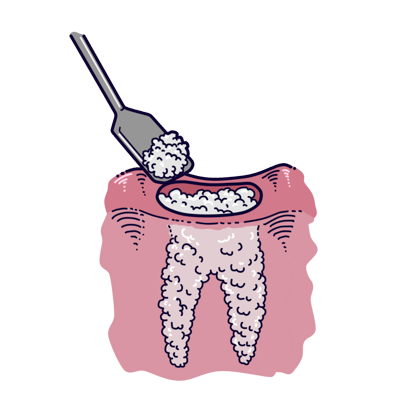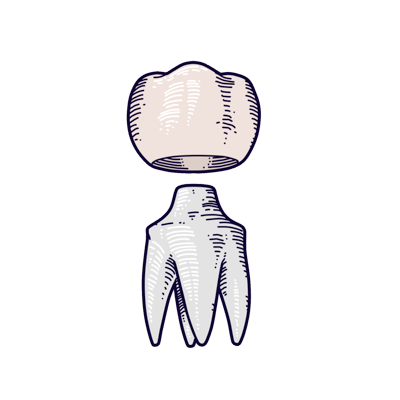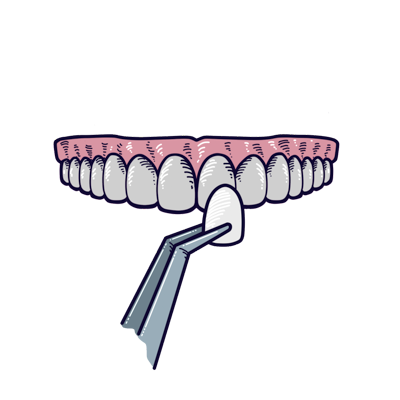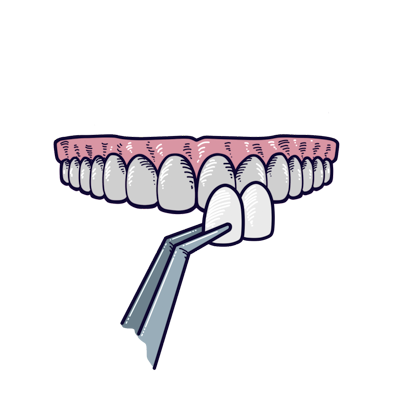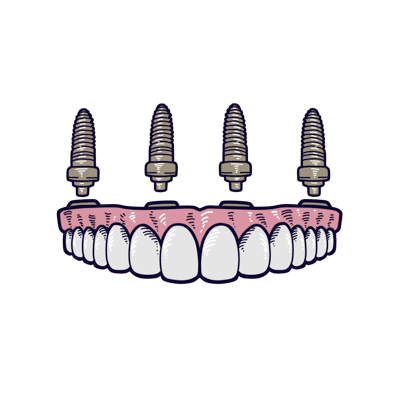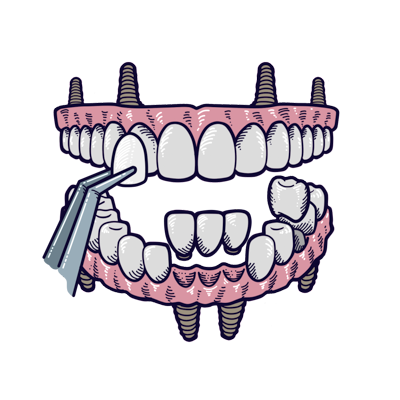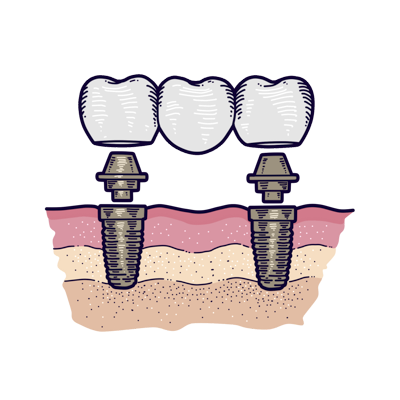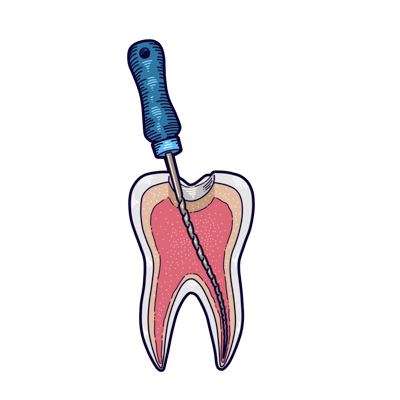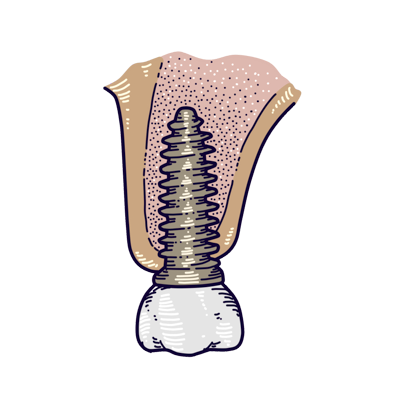Price of
ROOT CANAL
TREATMENTS
IN MEXICO

Try our Cost & Smile Simulator
from the comfort of your own home.
100% Free. 100% Confidential.

What Is a Root Canal Treatment?
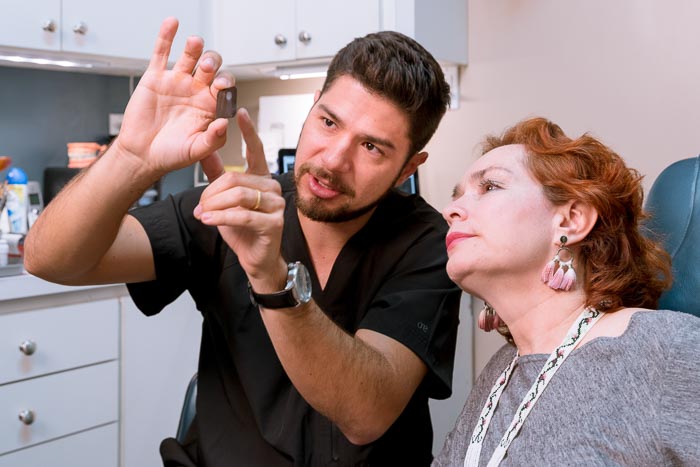
How Does a Root Canal Relate to All on 4?
The All on 4 dental implant procedure is designed to replace an entire arch of missing or damaged teeth using four strategically placed dental implants. The treatment provides a full-mouth restoration solution that can support a fixed prosthesis (denture or bridge). While the primary focus is on replacing missing teeth, many patients have partially intact dental structures with some severely infected teeth. In such scenarios, a root canal treatment becomes a critical option.
Why Choose Mexico for Root Canal Treatments?
For those seeking All on 4 procedures, undergoing a root canal in Mexico can be a cost-effective and high-quality solution, especially when considering the affordability and quality of care offered by Mexican dental clinics. Here are some reasons why Mexico is a popular choice:
1. Affordable Pricing
Save up to 70% compared to prices in the USA and Canada.
2. Highly Skilled Dentists
Access to board-certified endodontists and implantologists with extensive experience in root canal therapy.
3. State-of-the-Art Clinics
Modern facilities equipped with the latest technology, meeting or exceeding international standards.
4. Proximity to the USA and Canada
Convenient travel options for North American patients, making dental tourism highly accessible.
5. Comprehensive Care Options
Many clinics offer All on 4 treatments, root canals, and general dental services, providing a one-stop solution for complex dental cases.


Try our online Cost & Smile Simulator from the comfort of your own home.
100% Free. 100% Confidential.
Cost of Root Canal Treatments in Mexico
The price of root canal treatments in Mexico varies depending on the complexity of the procedure, the type of tooth being treated, and whether additional treatments (such as post and core or crowns) are necessary.
Average Prices
Anterior Tooth (Front Tooth): $300 USD to $350 USD
Premolar Tooth: $300 USD to $350 USD
Molar Tooth: $300 USD to $400 USD
Post and Core Build-Up: $150 USD to $200 USD (if required)
Dental Crown (After Root Canal): $400 USD to $500 USD, depending on material.
While these prices are significantly lower than those in the USA or Canada, combining root canal treatments with All on 4 procedures in Mexico can maximize savings and reduce the overall time spent undergoing dental work.
Comparing Prices: Mexico vs. USA and Canada
When performed alongside an All on 4 procedure, root canals in Mexico provide substantial savings without compromising on quality or safety.
| Procedure | Mexico | USA | Canada |
|---|---|---|---|
| Root Canal (Anterior Tooth) | $300 USD | $800 USD | $900 USD |
| Root Canal (Premolar Tooth) | $300 USD | $900 USD | $1,000 USD |
| Root Canal (Molar Tooth) | $350 USD | $1,200 USD | $1,300 USD |
| Dental Crown (Per Tooth) | $400 USD | $1,000 USD | $1,100 USD |
Why Retain Natural Teeth During All on 4?
Preserving Bone Density: Keeping some natural teeth can help maintain bone density, reducing the need for extensive bone grafting.
Anchorage for Implants: In some cases, natural teeth can be used to support a temporary bridge while the All on 4 implants heal.
Minimizing Invasive Procedures: Avoiding unnecessary extractions can simplify the treatment plan and improve the patient’s overall health profile.
By treating the infected teeth with root canals before undergoing the All on 4, patients may be able to strengthen the foundational support for the future implant-retained bridge. This is particularly beneficial for those with complex dental histories or compromised bone structures.
Signs You May Need a Root Canal
- Severe Toothache: Persistent pain that worsens when chewing or applying pressure.
- Prolonged Sensitivity: Sensitivity to hot or cold that lingers even after the stimulus is removed.
- Tooth Discoloration: Darkening or grayish discoloration, indicating pulp tissue damage.
- Swelling or Tenderness: Swollen, tender gums near the affected tooth.
- Recurring Pimples on Gums: Abscesses or small bumps that appear and reappear on the gums.
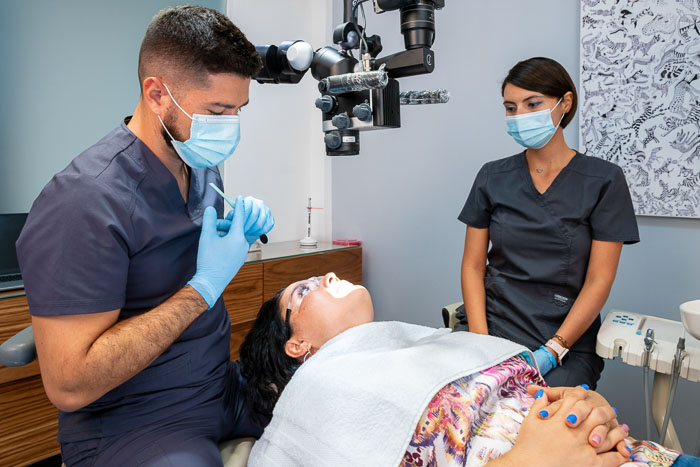
Benefits of Getting a Root Canal
For potential All on 4 patients, getting a root canal on viable teeth can offer several benefits:
- Pain Relief: Eliminates the pain and discomfort associated with an infected or inflamed tooth.
- Preservation of Natural Tooth Structure: Saves the tooth from extraction, which can help maintain the surrounding bone and gum tissue.
- Improved Implant Success Rates: Preserving natural teeth can reduce the need for additional surgical procedures, such as bone grafts, and improve implant placement options.
- Support for Temporary Prosthetics: Treated teeth can act as a support structure for temporary dentures or bridges, aiding in the healing process for the All on 4 implants.
The Root Canal Procedure Explained
- The dentist creates a small opening in the crown of the tooth to access the pulp chamber and root canals.
- This step allows for the removal of infected or damaged tissue.
- Using specialized instruments, the dentist carefully removes the infected pulp and cleans the interior of the canals.
- This step eliminates bacteria and prevents the spread of infection.
- The root canals are shaped to allow for proper filling.
- The canals are thoroughly disinfected to ensure no bacteria remain.
- The dentist fills the cleaned canals with a biocompatible material, usually gutta-percha, to seal the space and prevent reinfection.
- The access opening is sealed with a temporary or permanent filling.
- If necessary, a dental crown is placed during a follow-up appointment to restore the tooth’s strength and functionality.
- The patient is given instructions for aftercare, including managing discomfort and maintaining oral hygiene.
- A follow-up visit may be scheduled to monitor healing and finalize any restorative work.
FREQUENTLY ASKED QUESTIONS
1. What is the recovery time for a root canal procedure?
Most patients recover within a few days after a root canal. Some mild discomfort or sensitivity may occur but typically subsides quickly. Your dentist may recommend over-the-counter pain relievers or prescribe medication for any post-treatment discomfort.
2. Can I get a root canal and an All on 4 procedure on the same day?
While it is possible to perform both treatments on the same day, it depends on your oral health and the complexity of your case. Your dentist will evaluate whether completing a root canal first would better support your All on 4 treatment plan.
3. How do I know if I need a root canal before getting All on 4 implants?
Your dentist will perform a thorough examination, which may include X-rays, to assess the condition of your teeth and gums. If any teeth are salvageable and can provide structural or bone support, a root canal may be recommended.
4. Will getting a root canal in Mexico compromise the quality of treatment?
No, many clinics in Mexico meet or exceed international standards for dental care. By choosing a reputable clinic with experienced dentists, you can expect high-quality treatment at a fraction of the cost.
5. Are root canals painful?
Any post-procedure discomfort is usually mild and manageable with medication.
6. How long does a root canal procedure take?
7. Can a root canal-treated tooth be used as part of the All on 4 structure?
In some cases, root canal-treated teeth can temporarily support prosthetics while implants heal. However, this decision depends on the condition of the tooth and the overall treatment plan.
8. How long will the results of a root canal last?
With proper care, a root canal-treated tooth can last for decades. Regular dental check-ups and good oral hygiene are essential for maintaining the results.
9. What are the risks if I avoid getting a root canal before All on 4 treatment?
Avoiding necessary root canal treatments may lead to infections, abscesses, or complications during implant placement. Addressing infections before All on 4 surgery ensures a healthier foundation for implants.
10. Is dental insurance accepted for root canal procedures in Mexico?
Some clinics in Mexico accept international dental insurance, but it’s essential to confirm with your provider beforehand. Many patients pay out of pocket due to the significant cost savings.
TIPS FOR TRAVELING TO MEXICO
FOR DENTAL WORK
Traveling to Mexico for dental work, including root canal treatments, can be an excellent choice for both cost savings and high-quality care. To ensure a smooth experience, here are some helpful tips:

- Research and Choose a Reputable Clinic
Before booking your trip, research dental clinics with positive reviews and experienced professionals. Look for certifications and ensure the clinic meets international standards for hygiene and safety. - Check Your Passport and Visa Requirements
Make sure your passport is valid for at least six months from your intended travel date. For many visitors, a visa is not required for short stays, but check your specific requirements based on your nationality. - Plan for Aftercare
Confirm the clinic offers post-treatment care or follow-up consultations. After a root canal, it’s important to have a local contact for any potential complications or questions after your procedure. - Travel Insurance
Consider purchasing travel insurance that covers dental procedures and medical emergencies. This provides peace of mind in case of unexpected issues during your trip. - Budget for Additional Costs
While dental care in Mexico is much more affordable, there may be additional costs for travel, accommodation, meals, and transportation. Plan accordingly to ensure you have enough funds for the entire trip. - Stay Close to the Clinic
Choosing accommodation near your clinic can help minimize travel time and stress, especially if you need to attend multiple appointments during your visit.
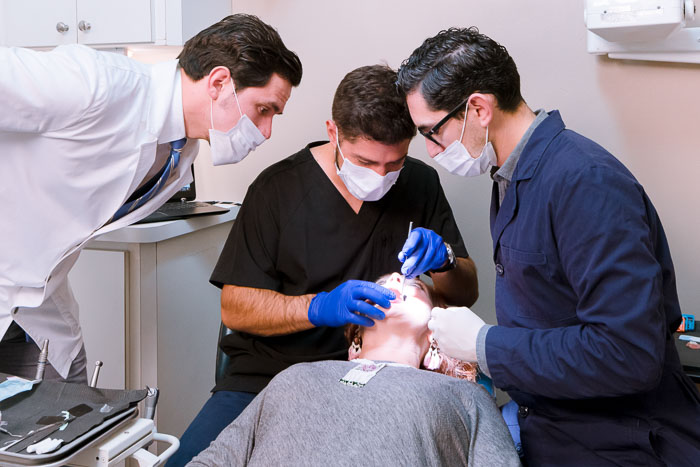
CONCLUSION
For patients considering the All on 4 dental implant procedure, root canal treatments can be an important preparatory step, ensuring that any remaining teeth are infection-free and structurally sound. Although the primary goal of All on 4 is full-arch restoration, integrating root canal therapy into the treatment plan may be necessary to address severely damaged teeth that can still be salvaged. By preserving these teeth, patients can potentially improve the stability of the prosthesis, maintain bone density, and minimize the need for more extensive procedures like bone grafting. Visit SOTA Dental today!
References
- Animated-Teeth.com: What is the purpose of root canal treatment (endodontic therapy)? What does it do?
- Healthline: Do You Need a Root Canal? 7 Telltale Symptoms
- University of Michigan Health: Root canal treatment
- WebMD: Root Canal Procedure for Infected Tooth Nerve.
- Animated-Teeth.com: How X-rays are used to diagnose the need for root canal treatment.
- Pocket Dentistry: Local Anesthesia | Pocket Dentistry
- PubMed: Filling Root Canals of Human Teeth
- Wiley Online Library: Efficacy of sonically, ultrasonically and laser‐activated irrigation in removing a biofilm‐mimicking hydrogel from an isthmus model – Swimberghe – 2019 – International Endodontic Journal – Wiley Online Library
- Dentistry IQ: Endodontic insight: 4 restoration selections for success after root canal treatment
- ScienceDirect: Managing root canal treatment pain
- Healthline: How Long Does a Root Canal Take, and What Can Impact the Time?
- ADA: Root Canals | MouthHealthy – Oral Health Information from the ADA.





